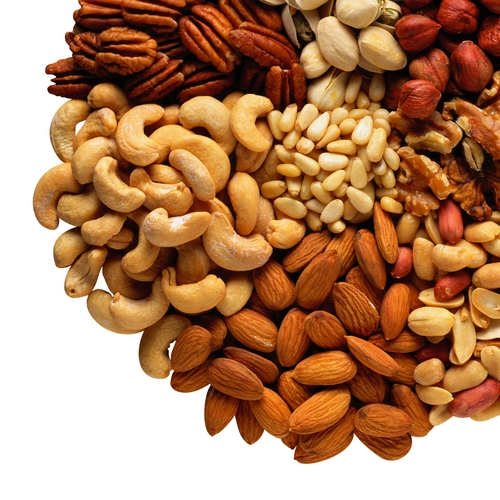 The other day, I was chatting with a friend about the benefits of raw versus roasted nuts.
The other day, I was chatting with a friend about the benefits of raw versus roasted nuts.
In a world where so-called raw diets are increasingly popular, there’s a tendency to assume that raw is healthier. The science for this is less clear. While some foods are healthier when eaten raw (as heat can destroy nutrients and reduce the benefits of certain foods), this isn’t true of all foods. Tomatoes, for example, are healthier when heated due to lycopene content.
So what’s the deal with nuts?
There hasn’t been a study to specifically determine how roasting nuts changes their nutritional properties. But according to Dr. Rui Hai Liu, a professor of food science at Cornell University who has studied the benefits of nut consumption, “you will get health benefits from consuming either raw or roasted nuts.” He continues, “I don’t think the processing will decrease the benefits, and it may improve the bioavilability of some bioactive compounds.”
But here’s the big catch.
Many of the “roasted” nuts at grocery stores are actually fried. It’s true. If you look at the ingredients, you’ll likely see vegetable oil and salt listed. The vegetable oil is added during the frying process - and then, to add insult to injury, the nuts are usually salted.
If you prefer roasted nuts but want to avoid purchasing fried nuts, only buy nuts labeled as “dry-roasted nuts.” Or, even better, buy raw nuts and roast them yourself in the oven. Don’t add oil and don’t add salt. The nuts will still taste great.
In summary, you can’t go wrong with raw, unsalted nuts. If opting for roasted nuts, select the unsalted and dry-roasted variety. You’ll ensure that you’re getting a healthy, convenient, high fiber, and high protein food that’s loaded with healthy fats.








